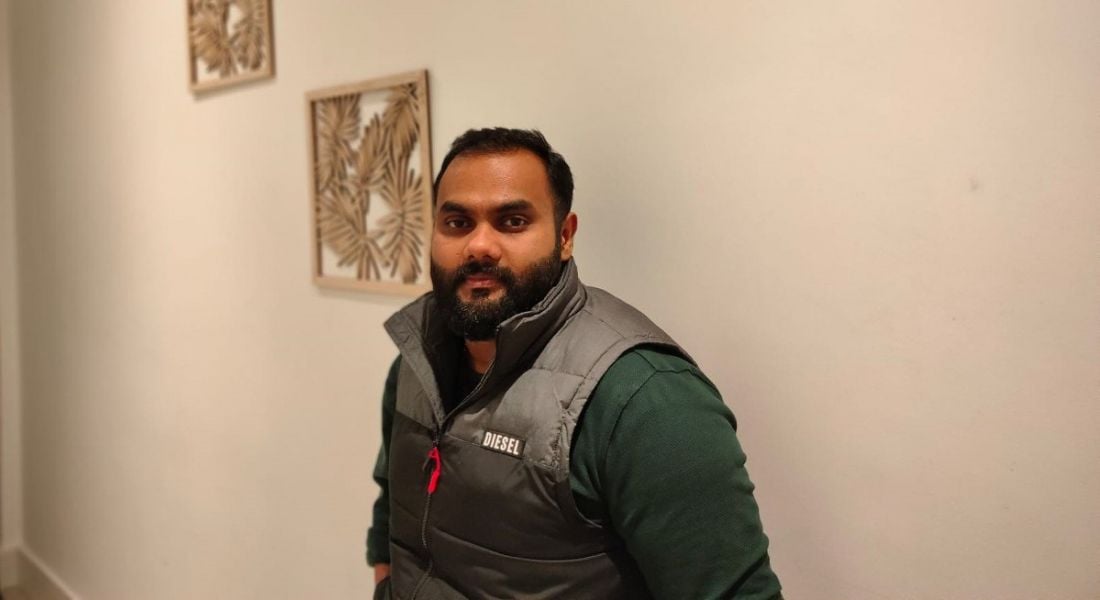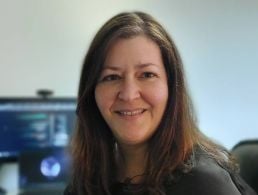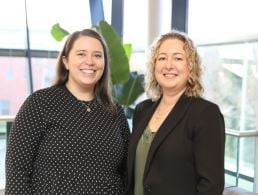Making the decision to change careers can be daunting. Here, Fidelity’s Ranjith Ramanan explains how he moved from software engineering to trade operations.
Ranjith Ramanan works as a senior manager in trade operations at Fidelity Investments, but his journey to this point was not exactly straightforward.
He studied engineering and started his career as a software developer, before heading into the world of finance, and he now spends his days in a “hybrid role” – one that allows him to fulfil his interests but also apply his education and experiences to the task at hand.
‘If you are in a job and you think you like it, remain open to new experiences as it could be a revelation for you’
– RANJITH RAMANAN
What first stirred your interest in a career in this area?
I have always had an interest in tech and would often find myself spending time keeping myself updated on the newest trends. Given a need, whether in personal or professional life, I quite enjoy researching and analysing all the options and solutions.
While working for Fidelity Investments as a senior manager for trade operations for a few years, I was presented with an opportunity to join the strategy implementation team within the same business unit and be hands-on with the solutions being developed for global trade operations. To that, I couldn’t say no.
What experiences led you to the role you now have?
I am an engineering graduate and was a software developer when I started off my career. However, not so long after, I started developing a keen interest in finance, which led me into a job in the retail banking sector as a branch manager for a commercial bank.
This is where my career in financial services started and, along the way, I pursued an MBA degree to further my knowledge in financial and operations management. This was predominantly on investment strategies and practices with a secondary focus on optimisation of operations, which played a big role in me landing a job in Fidelity Investments, managing the trade operations teams.
It was then an obvious next step for me to stitch together my old engineering profession and interest in the job that I was doing in finance operations. Right now, in this hybrid role, I get to practice my interest and put prior education and experience to good use.
What were the biggest surprises or challenges you encountered on your career path and how did you deal with them?
When my career started, I wasn’t really sure what I wanted exactly. I was a developer but didn’t think that it would be a long-term career path for me. This was the case with the role in retail banking as well, where meeting top-line goals for the bank was my responsibility.
However, I have been lucky in trying out different roles, which helped me realise what I wanted. Understanding that and then figuring out a job that matched this aspiration was the most difficult part of the journey, but a worthwhile and educational adventure.
Was there any one person who was particularly influential as your career developed?
Narrowing down to one person is quite difficult. In every role and company that I have worked in, there have been peers and managers who have helped me in getting a good grasp of where I was and helped me get to where I wanted to be.
Some of them, by their role or conduct, were inspirational and I wanted to emulate their journey. However, in meeting so many different people across roles, geography and cultures, I realise that, for me, it’s better to learn from the strengths of many and develop and practise the same in my own way as I pursue my career and interests.
What do you enjoy about your job?
The fact that I am not limited to just one thing like software development, operations or coaching, but a mix of everything on a daily basis.
In this role, it’s a new day every day and you get to utilise all your experience and knowledge and, at times, realise that none of that would help and that I would need to start from the scratch to learn a completely new skill.
What aspects of your personality do you feel make you suited to this job?
When it comes to problem solving, my ability to think outside the box and to put in time to understand the real issue, given my previous role in operations, helps a lot.
However, what I believe I do best in this role is communicating – helping my business partners by clearly articulating the problem and solution, being precise on where we stand on project delivery, and being definite on what needs to happen for it to move ahead.
How did Fidelity Investments support you on your career path?
Fidelity Investments – both its India and Ireland offices – has played a significant role in directing me to where I am today. The organisation has given me an opportunity to work in different countries, helping me to broaden my outlook, and I was given the luxury to try out everything I wanted – robotics and machine learning, to name a couple – to get the right exposure along the way.
I have never had anyone say no to any pursuit that may have sounded purely a hypothesis or if I were unable to quantitatively define the business values at the outset.
I truly believe Fidelity’s nature to being open to and supportive of any kind of change is what keeps us going as a market leader.
What advice would you give to those considering a career in this area, or just starting out in one?
If you are in a job currently that you don’t like or are not sure about what you want – don’t worry, as you are not alone. Give it enough time and you’ll realise what you want to do.
If you are in a job and you think you like it, remain open to new experiences as it could be a revelation for you.




